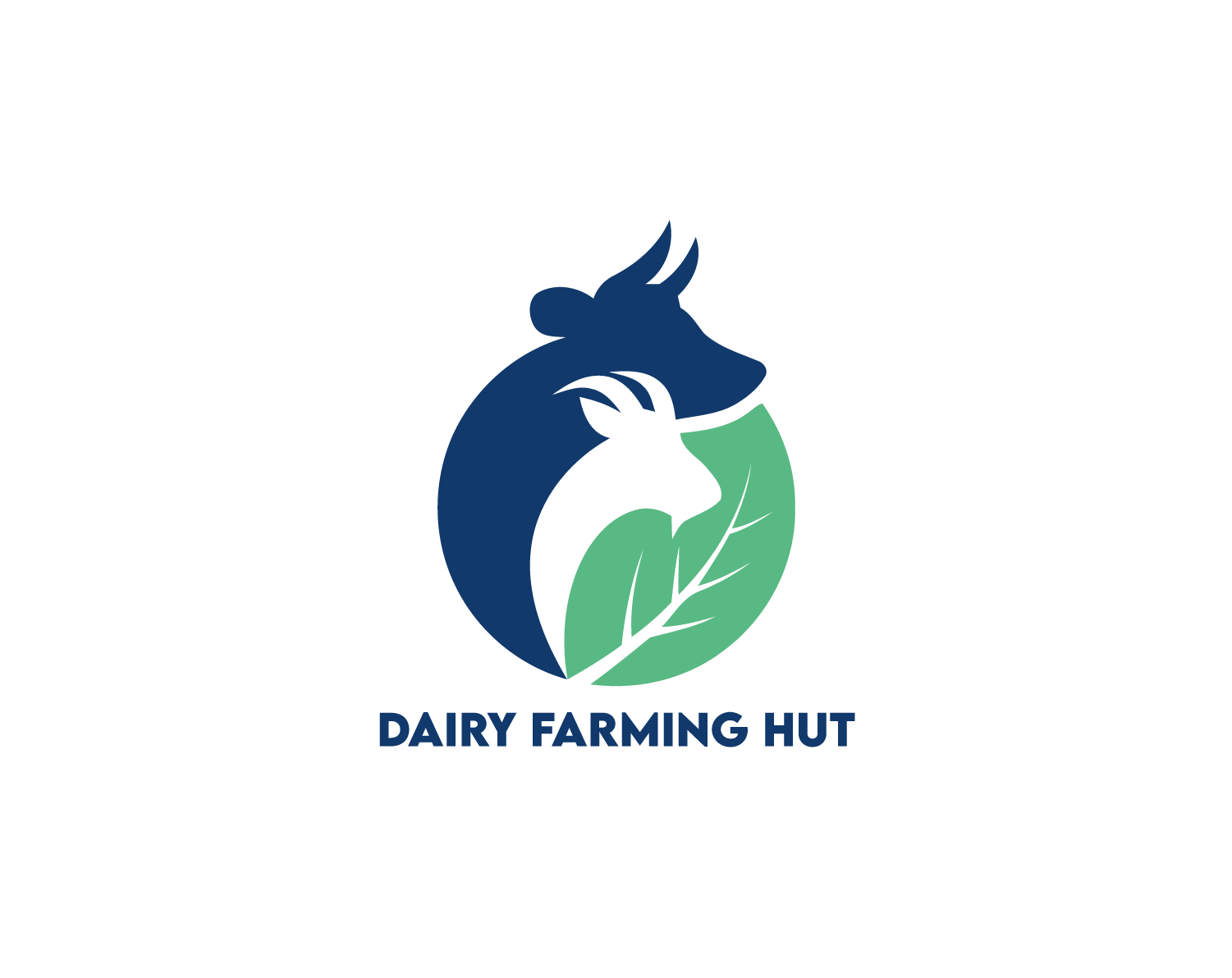Dairy farming is an exclusive form of farming that involves producing, processing, and delivering dairy products. While milk is the most significant product produced in dairy farms, other products are also made and processed, including butter, cheese, and curd.
Most dairy farmers prefer rearing cattle in their farms; however, other animal species are also bred for milk and other dairy products. These animals include sheep, goats, and even camels. Taking care of all these animals can be tedious, especially if you don't have the proper tools and machinery that can help make your work easier.
Tractors are essential pieces of machinery in farms since farmers use them to perform various tasks around the farm. So, the answer to the question above is yes; you need a tractor for your dairy farm.
Read on and discover more on why and how you could use a tractor on your dairy farm.
Tractor for a Dairy Farm
It pays to use tools and machinery meant to make your work easier on the farm; however, it pays even more to use the tools and machinery efficiently. After all, it would be best if you had maximum returns from your investment. Before we get into which tractors are efficient for your farm, let's discuss how they are used.
What are Tractors used for on a Dairy farm?
Tractors can be equipped with various accessories and used for multiple farming activities, including harvesting, tilling, plowing, and cultivating field crops. Farmers can mount various attachments like hay forks to lift and move hay that's used as animal fodder.
Farmers can attach other accessories to the tractor like manure spreaders or feeders for chopping animal feeds. You can also attach trailers for easier milk collection and transportation to the processing plant.
Benefits of Having Tractors on a Dairy Farm
Transporting food and equipment
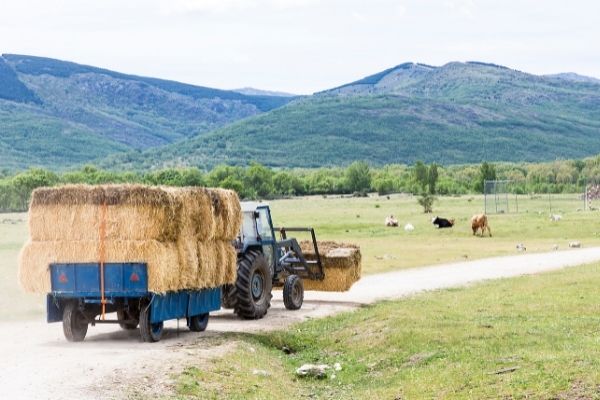
You can use dairy farm tractors to transport food, equipment, animal waste, and other products between locations. You could use tractors to move animal food from the stores to their feeding units. Tractors can also help move construction material during repairs and even move animal waste to storage areas where you can use it as fertilizer.
Planting animal food
Tractors can be used when planting food for your animals. If you buy all your animal food, you don't need tractors for this purpose; however, if you grow your animal's food (that's later processed into silage), you need tractors for cultivation and even harvesting. Keep in mind that you'll need to add some cultivation or harvesting attachments on a tractor for this purpose.
Feeding the cattle
You could use tractors with mounted feeding systems to feed the cattle by distributing their feed effortlessly. Such tractors allow you to feed 90 cattle in less than two hours, which is vastly time-saving. You could also use your tractor to clean up after the cattle and make room for distributing more fresh feed.
Cleaning the animal shed
Manually cleaning the animal shed can be extremely difficult, especially if you have many cattle. However, you could ease this process by using tractors equipped with shoveling equipment to move animal waste towards preferred destinations. You could then use a load-carrying tractor to carry the animal waste to designated storage facilities.
How do you Choose the Perfect Tractor for Better Efficiency?
There are some questions you're probably asking yourself if you're looking to buy a tractor for your dairy farm. For instance, do you need one tractor per worker? Is it more cost-efficient to have specific tractors attached to specialized machinery and used for particular purposes? Will this be expensive? Should you use contractors or do the farm work by yourself?
You need to select the best type of tractor if you're looking to make good profits off of your investment. For instance, it would be good to make detailed calculations regarding how many tractors you need to buy.
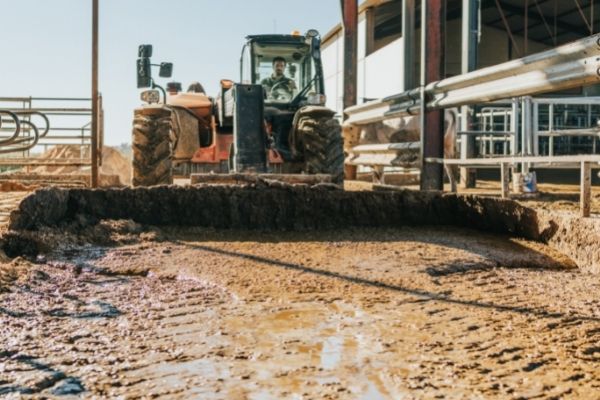
Having 14 tractors operated by 14 individuals, with a few extra workers, could be costlier if you have 500 cows.
Having done some research, we've discovered some interesting results that can help you choose the right type and number of tractors to produce better profits on your dairy farm.
Different types of Farm Tractors
There are various types of farm tractors to choose from. They include:
Utility Tractors
These are often used for heavy farming operations like pulling heavy equipment and plowing
Compact Tractors
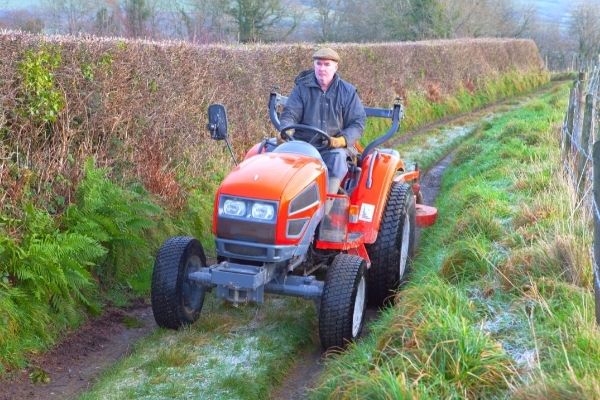
Compact tractors are often used in fruit yards, vineyards etc because they are more comfortable and consume less fuel.
Industrial Tractors
These tractors are often huge and are used in industrial settings to carry and move heavy loads.
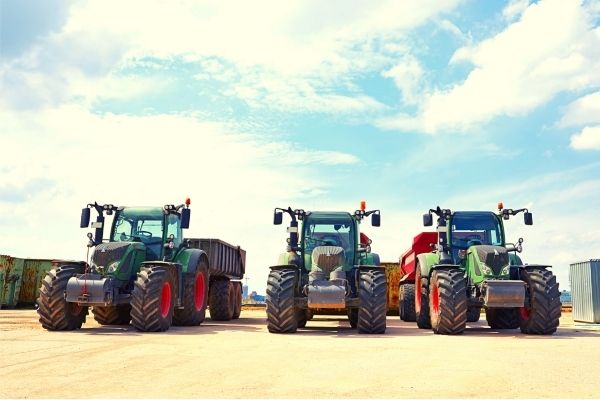
Implement Carrier Tractors
These tractors have an extended chassis frame that you can fix with mounted implements that could be used for various purposes like loading, drilling, seed drilling, and much more.
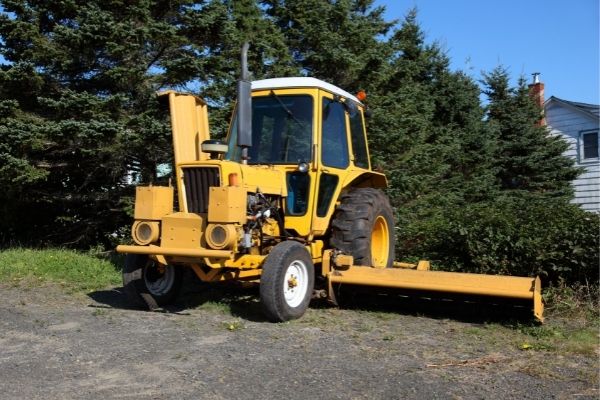
How many Tractors does it take to run a Dairy Farm?
Our research estimates that each farm should have 55 cows to a single tractor. We found this to be more efficient than another farm with 30 cows to one tractor. If you have 220 cows on your dairy farm, four tractors can serve the farm.
Dairy farms that we found to be more efficient had smaller tractors in both number and size. Such farms had fewer, 92 horsepower tractors that brought about a 1.7 horsepower per cow ratio, compared to inefficient dairy farms with a 3.7 horsepower ratio with 120 horsepower tractors.
Our research helped us conclude that there is a direct relationship between the number and size of tractors on a farm and the return on investment. This is due to a couple of factors.
Check Our Complete Guide on UTV and ATV for Dairy Farms
Why would it be good to buy relatively small CC tractors?
Smaller tractors use less fuel
Smaller tractors use less fuel than larger tractors because they have a smaller engine and weigh less. Thus, unless you need a big tractor to take care of more complex farming activities, the best thing to do would be to go for smaller versions.
More is not always better
More tractors don't always mean better efficiency. For instance, you can have more tractors that get in the way, which reduces your drivers' and other workers' efficiency. Having fewer tractors that can be used effectively can help you get better returns on investment.
Fewer tractors reduce your maintenance costs
Having fewer tractors helps reduce your maintenance costs. For example, if you have more tractors than you need, this can increase the operational cost of your dairy farm. The tractors, like any machinery, need servicing or new parts, which could be costly, especially if your farm isn't making enough profit.
How do you go about making Profitable Changes?
Do your calculations
If you're thinking about making some changes, the first thing to do is to research and determine how efficiently your farm can use tractors. For instance, you could calculate how many cows you have and get a good tractor to cow ratio of 1:55 or so.
Ensure that you create a good work schedule
Next, you'll need to create a good work schedule that allows for efficient use of your resources. You could do this by putting aside any extra tractors and reorganizing how work is done in the dairy farm using the remaining tractors.
Check out this video on great use of various tractors on dairy farm
Sell the tractors
Suppose you still manage to perform tasks efficiently with fewer tractors. In that case, you can sell the extra tractors and reinvest the money on something else. However, ensure that reducing the number of tractors doesn't impact your profits, and your farm still gets good or better profit than it did before.
Make other changes that support your new approach
Reducing the number of tractors on your dairy farm could be a tough decision as you'll have to do more work than you intended to. However, it is a sound financial decision that, if done correctly, can assure you better profits.
It would be good to ensure that any changes you make support your new approach. Increasing the number of hours you put your tractors to work could help you compensate for the tractors you got rid of.
Plus, keep in mind that it would be good to sell one tractor at a time and checking the impact on workload etc.
Conclusion
Tractors can make dairy farming less labor-intensive. However, while using tractors to make work easier is excellent, it's still good to ensure that you don't purchase more machinery than required. As such, checking to ensure that the number of tractors on your dairy farm allows you to make maximum profits is always a good idea.
Check our Tools and Equipment section for useful information on more dairy farming tools and equipment.
This is not an Investment Advice
The Ideas and Strategies presented on this website and the information are based on our research and experience. These strategies are not intended to be a source of financial or business advice concerning the material presented. The information and/or documents contained on this website do not constitute investment advice. Any business idea or investment plan with financial risk should never be used without first assessing your own personal and financial situation or consulting a financial professional.
